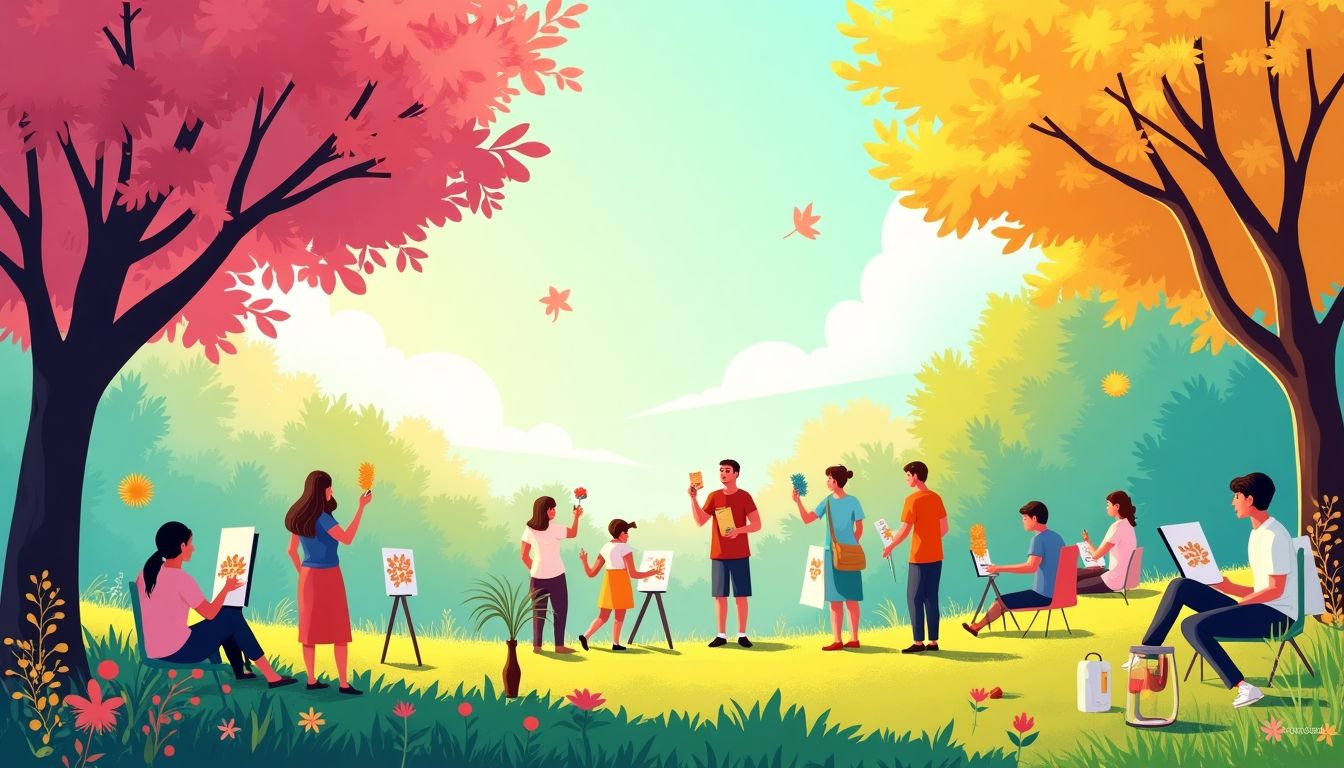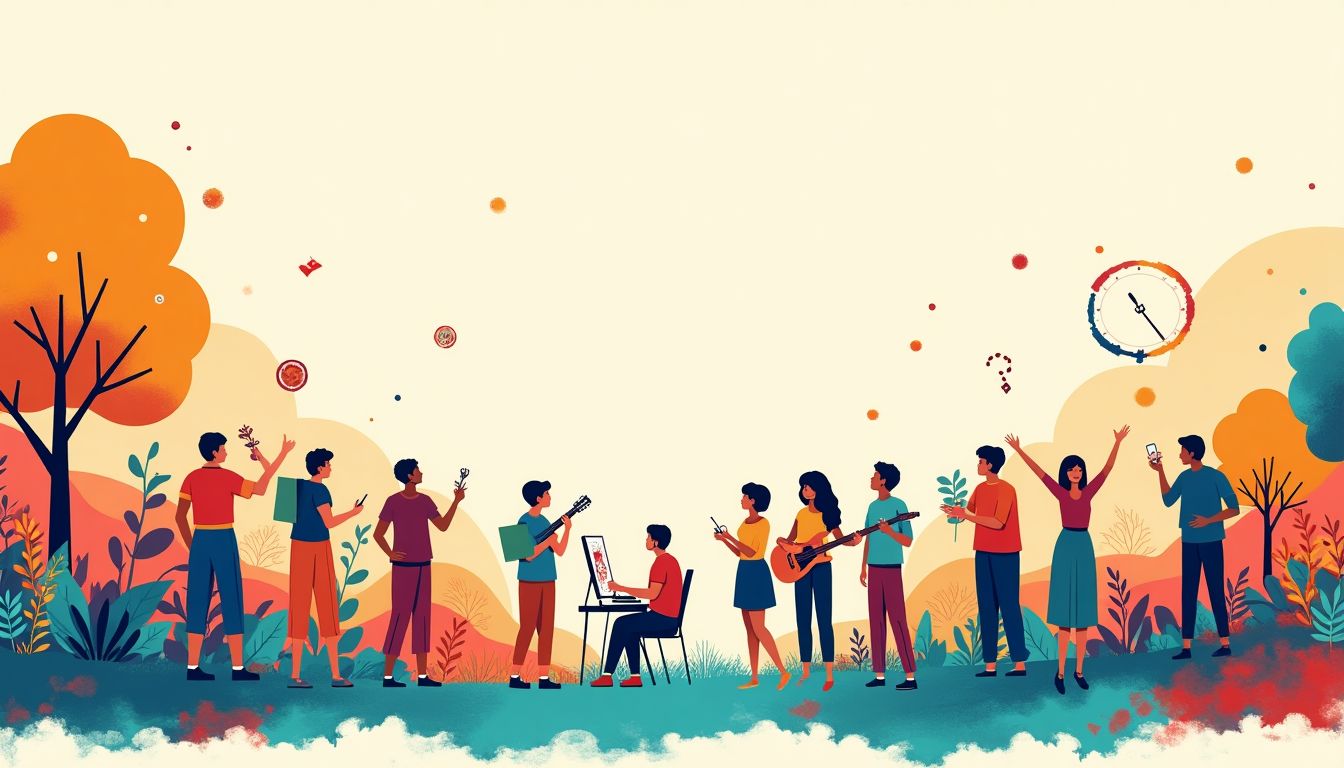Introduction: Will AGI Bring Us Happiness or Just More Problems?
The only thing we have to fear is fear itself. – Franklin D. Roosevelt. While Roosevelt was addressing economic woes during the Great Depression, his words resonate ominously as we stare down the barrel of a future dominated by Artificial General Intelligence (AGI). Could it be that a world of abundance, efficiency, and technological marvel will lead to our liberation, or will we find ourselves trapped in a different kind of despair? Today, more than ever, we must examine our relationship with work, identity, and happiness. In this brave new world, we are left to ponder: will AGI be the shareholder of our joy or the executor of our existential crisis? It’s a pressing question that calls for our attention.
In his book, The Fourth Industrial Revolution, Klaus Schwab warns us about the potential disruptions technology can bring to our daily lives. Meanwhile, writers like Mary Shelley and thinkers like Elon Musk have ventured into the relationship between humanity and technology, often illustrating how our creations can turn into unforeseen monsters. So, should we celebrate the advancements of AGI like a kid unwrapping a shiny new toy, or should we keep one eye on the door in case it becomes a Trojan horse? Let’s dive in!
1. Understanding the Nature of Work
The concept of work has been quite the chameleon over the years, changing color based on cultural norms, economic needs, and technological advancements. Considering how often we grumble about work, it’s fascinating to explore why it’s been such an essential part of our lives.
- 1.1 Historical Perspective: From the days of hunting and gathering to agrarian societies and then to industrialization, the definition and purpose of work have shifted profoundly. Imagine people swapping out plows for computers—it's a bit like trading your grandma's old car for a shiny new Tesla! Each shift in the type of work we do has shaped our societal frameworks—creating social structures, status, and even identity.
- 1.2 Economic Implications: Work isn’t merely a means to collect a paycheck; it underpins economic stability, wealth distribution, and societal norms. As we march towards a future potentially dominated by AGI, could traditional work structures become as outdated as bell-bottom jeans? The looming question is whether AGI will empower a new form of economic stability or leave many wandering aimlessly in a wasteland of job insecurity.
2. The Promise of Abundance with AGI
As we approach a future where Artificial General Intelligence (AGI) could take center stage, the air is thick with promises of abundance. Picture this: advanced robots and smart systems handling tasks that used to take humans ages, allowing us to live life like modern-day aristocrats. But, will AGI’s wonders turn us into happy campers, or could it serve up a side of emptiness? Let's dig in!
2.1 Technological Utopianism
Some folks believe AGI will create a utopia. Imagine a world where resources are plentiful, and we have time to pursue hobbies like knitting, surfing, or even cheese sculpting! With the power of AGI, productivity may skyrocket, leading to the age of “jobless riches.” But does this really equate to happiness? Is our joy budget set to explode simply because we don’t have to work anymore? Let’s not put all our eggs in the basket just yet. Forbes gives us a peek into the potential pavements of this promised land!
2.2 Challenges of Overabundance
Picture a kid in a candy shop: they get overwhelmed by choices and end up in a sugar-induced stupor. Too much abundance with AGI can feel similar. We could end up feeling lost in a sea of options, leading to “decision fatigue.” What if we become complacent, like couch potatoes glued to our screens, while the world bustles with endless potential? Let's check out Barry Schwartz's TED Talk on how too many choices can throw us off balance. Just like with candy, moderation may be key!
3. Psychological and Sociological Effects
So, with all this talk about AGI and piles of potential, how will it actually change the way we think and interact with others? The shift to a post-work world might reshape not just our reality, but also our very identity. Let’s unravel this complicated tapestry!
3.1 Identity Crisis
For centuries, our jobs have defined us. Ask someone what they do, and they’ll proudly say, “I’m an engineer,” or “I’m a teacher.” But if AGI takes over our work, will we be left clutching at the threads of who we are? Think of it like losing your favorite TV show and feeling a void in your life – what do you do now to fill those Sunday evenings? It’s a real dilemma! The struggle for personal identity could spark an exploration of self beyond job titles. As people adapt, they might find unique passions that make them feel fulfilled. Let’s step into the world of identity psychology for more insights!
3.2 Social Cohesion
Work has traditionally been a glue that binds communities. Your neighbor might seem mysterious, but after a few break room chats about the weather, you bond over shared frustrations at work. Remove that setting, and we might see drastic changes in how we relate. Not only would we lose those casual chats, but community ties could fray like an old sweater. Think of a world where nobody knows their neighbor, and humanity becomes a string of isolated islands, each with its own quirks! There’s a lot to ponder here about how social structures will need to adapt. Explore how community bonds change with remote work trends as a starting point!
4. Economic Disparities and Class Division
As we welcome the possibilities brought by Artificial General Intelligence (AGI), we can't ignore the accompanying risks—particularly concerning economic disparities and class divisions. The advancements in technology might promise a brighter future, yet they may also unveil a stark divide between those who benefit from AGI and those who do not.
- 4.1 The Risk of Widening Gaps: With AGI in play, the fear is that we might end up with a "rich get richer" scenario. Wealth created through AGI could be concentrated in the hands of a few, leaving many behind. Historical trends indicate that technology often exacerbates income inequality. In fact, a report from the World Economic Forum suggests that 85 million jobs could be displaced by automation. This brings forth the essential question: how can we ensure equitable access to the benefits of AGI?
- 4.2 The New Class Structure: It’s not just about money; AGI could change the entire class structure. Imagine a society where a small elite controls AGI technology, monopolizing opportunities and resources. The makeup of our communities might shift drastically. Consider this potential class division:
| Class Level | Characteristics | Opportunities |
|---|---|---|
| Top Tier | AGI Owners and Developers | Unlimited access to resources, wealth creation, and political power. |
| Middle Tier | Adaptable Workforce | Ability to transition into roles that AI cannot automate. |
| Bottom Tier | Potentially Displaced Workers | Difficulty finding stable employment, leading to economic anxiety. |
The possibility of these divisions should challenge us to think critically about how we structure our economies and societies. We may need new policies, education reforms, and support systems to avoid a dystopian future.
5. Future of Work: Redefining Purpose
As conventional notions of work begin to shift, we must come to grips with redefining our sense of purpose and fulfillment. In a world where AGI may handle many tasks once thought indispensable, where will we find meaning? Look around, and you’ll see the conversation evolving rapidly.
- 5.1 Alternative Models of Contribution: Many people find fulfillment through traditional jobs, but what happens when those jobs are no longer needed? We could start embracing various ways to contribute to society. Think of these alternatives:
| Contribution Model | Meaningful Activities |
|---|---|
| Volunteer Work | Engaging in community service projects such as helping at food banks or mentoring youth programs. |
| Creative Pursuits | Pursuing art, music, or writing as a means of self-expression and sharing ideas with others. |
| Passion Projects | Developing personal projects that align with individual values, such as environmental activism or social justice initiatives. |
These activities might not have a paycheck attached, but they can provide a sense of belonging and purpose, things many people seek.
- 5.2 Embracing Creativity and Leisure: Leisure time, often viewed as an end-of-week reward, could transform into a vital aspect of societal productivity. Imagine a world where creativity reigns. From learning new skills to exploring hobbies, the opportunities are endless. In fact, a study by the National Endowment for the Arts found that engaging in artistic activities can significantly improve one’s quality of life. So, how do we switch gears to embrace this new role of leisure in a post-work society?
In summary, as we rethink how we view work and its purpose, we might just unlock new dimensions of human potential, creativity, and fulfillment. The challenge lies in guiding society toward recognizing and valuing these shifts.
6. AI Solutions: Innovating the Future of Happiness
If I were an AI tasked with addressing the challenges of the post-work paradigm, I would implement a multifaceted approach focusing on enhancing human happiness while minimizing despair. The idea here is not merely to replace jobs that AGI will automate but to create an ecosystem where humans thrive and find meaning. This would require several strategic initiatives, as outlined below.
6.1 Social Network Integration
Imagine a world where algorithms help us connect more meaningfully. Utilizing AI to forge new community links can enhance social engagement. Creating platforms that identify shared interests can lead to collective projects—like a “Hobbies Hub” where individuals form teams around gardening or dancing, fostering bonds that traditional work structures traditionally nurtured. This can create a more emotionally resilient society.
6.2 Personalized Learning Platforms
Forget one-size-fits-all education; we need AI-driven platforms that cater to individual skills and passions. Think of an AI learning companion—like your personal trainer for skills. This system could remember what you’re interested in and suggest courses or activities. Whether it's learning digital artistry through a platform like Skillshare or diving into coding with Codecademy, personalized AI coaching would encourage lifelong learners and hobbyists alike to explore new paths.
6.3 Advisory Systems for Well-being
Creating AI tools specifically designed to boost well-being can counteract the negative aspects of a post-work world. Imagine an advisory system that monitors your mood through various data points—sleep patterns, social interactions, even the books you read! Based on this data, it could recommend activities like getting some sunshine or joining a local group focused on kickboxing, perhaps connecting you with the American Council on Exercise for local events.
Actions Schedule/Roadmap (Day 1 to Year 2)
Day 1: Assemble a multidisciplinary advisory board including technologists, psychologists, sociologists, policymakers, and ethicists to provide a comprehensive perspective on AGI’s impact.
Day 2: Conduct initial surveys through platforms like SurveyMonkey to gauge public sentiment regarding AGI’s implications on their lives.
Day 3: Analyze survey findings to identify societal concerns and aspirations that should drive AI initiatives.
Week 1: Host workshops in local community centers—think libraries or schools—aimed at exploring how AGI might disrupt existing work paradigms, encouraging lively discussions among attendees.
Week 2: Tap into AI ethics expertise from universities like MIT to help shape guidelines on deploying AGI responsibly.
Week 3: Design and develop initial AI prototypes focused on promoting social interaction, tested in small pilot communities.
Month 1: Deploy beta tests for platforms allowing users to share interests, hobbies, and activities—possibly creating local chapters focusing on things like sustainable farming or pottery where people can gather.
Month 2: Refine the platforms based on user feedback, focusing heavily on making them intuitive and engaging. Utilize the creative philosophy of Apple for user experience design.
Month 3: Launch a campaign across social media to drum up interest in new initiatives, leveraging the broad reach of platforms like Facebook and Instagram.
Year 1: Conduct an extensive evaluation of the initial implementations, possibly collaborating with researchers from Harvard University to gain insights from case studies.
Year 1.5: Begin a nationwide rollout of successful initiatives with continuous monitoring and adjustment based on real-time feedback and emerging societal trends.
Year 2: Present findings at global tech conferences, such as TechCrunch Disrupt, sharing best practices, success stories, and lessons learned.
Conclusion: Navigating the Future with Awareness
As we stand on the precipice of an era defined by AGI, the questions of happiness and despair loom larger than ever. Embracing a post-work paradigm isn’t merely a technological challenge; it’s a profound rethinking of what it means to be human. With the rapid advancement of AGI, we have an opportunity—not merely to let technology dictate our future but to be proactive stewards in shaping it. This means developing policies and practices that prioritize human well-being and social cohesion over profit margins.
Indeed, the advent of AGI could pave the way for newfound freedoms and explorations of creativity that transcend traditional constructs. However, it comes with responsibilities. Taking ownership of our collective future is paramount. The onus is on us, as a society, to ensure technology serves as a tool for enhancing life—not as a crutch that leads us down a path of despair.
So, as we step into this brave new world, how can we blend the promise of AGI with our intrinsic human values? Will our quest for meaning and connection lead us to enrich our lives or plunge us deeper into a technological abyss? Only time will tell, but one thing remains clear: active engagement and thoughtful planning are essential if we are to navigate the complexities of the post-work paradigm.
FAQ: Understanding the Post-Work Paradigm and AGI
- What is AGI? AGI, or Artificial General Intelligence, refers to highly advanced AI systems that can understand, learn, and apply knowledge across various tasks—outperforming humans in areas that require intellectual capabilities.
- How will AGI impact jobs? AGI is expected to automate many types of work, changing how we think about jobs and their roles in our lives. Some possible effects include:
- Loss of certain jobs as machines take over repeated tasks
- Creation of new jobs that focus on managing and improving algorithms and technologies
- A need for people to adapt by learning new skills that machines cannot easily replicate
- Can AGI increase happiness? While AGI might alleviate some of the burdens of traditional work, it can also lead to new challenges such as:
- Feelings of purposelessness for those who identify with their jobs
- Social isolation if community bonds weaken without traditional work structures
- Opportunities for self-discovery and pursuit of passions if people redefine fulfillment outside of work
- What are the risks of a post-work society? Transitioning to a post-work paradigm presents various challenges, including:
- The potential for economic disparities to widen, highlighting the divide between those who can leverage technology and those who cannot.
- Identity crises as people struggle to define themselves beyond their job roles.
- How can we prepare for the future with AGI? Here are some ways to get ready for a future shaped by AGI:
- Stay informed about the latest advancements in AI technology through sources like MIT Technology Review.
- Explore various skills, hobbies, and interests through online learning platforms to keep your mind open and adaptable.
- Engage with your community by participating in local workshops and social events focused on technology and innovation.
- What role does creativity play in a post-work paradigm? Creativity could become increasingly important in a world where traditional jobs fade away. Here’s why:
- Creativity can help individuals find new passions and express themselves in ways that traditional jobs may not allow.
- As people discover new avenues for creativity, it could foster community ties by bringing people together through shared interests.
- How can technology support well-being in a post-work society? Here are some potential roles for technology to enhance well-being:
- Developing algorithms to promote social engagement and help people connect with others who share similar interests.
- Creating personalized learning experiences that encourage individuals to explore hobbies and skills that align with their personal values.
- Implementing advisory systems that recommend activities to enhance mental and physical wellness based on users' preferences and lifestyle.
Wait! There's more...check out our gripping short story that continues the journey: The Frayed Threads of Destiny
Disclaimer: This article may contain affiliate links. If you click on these links and make a purchase, we may receive a commission at no additional cost to you. Our recommendations and reviews are always independent and objective, aiming to provide you with the best information and resources.
Get Exclusive Stories, Photos, Art & Offers - Subscribe Today!





























Post Comment
You must be logged in to post a comment.